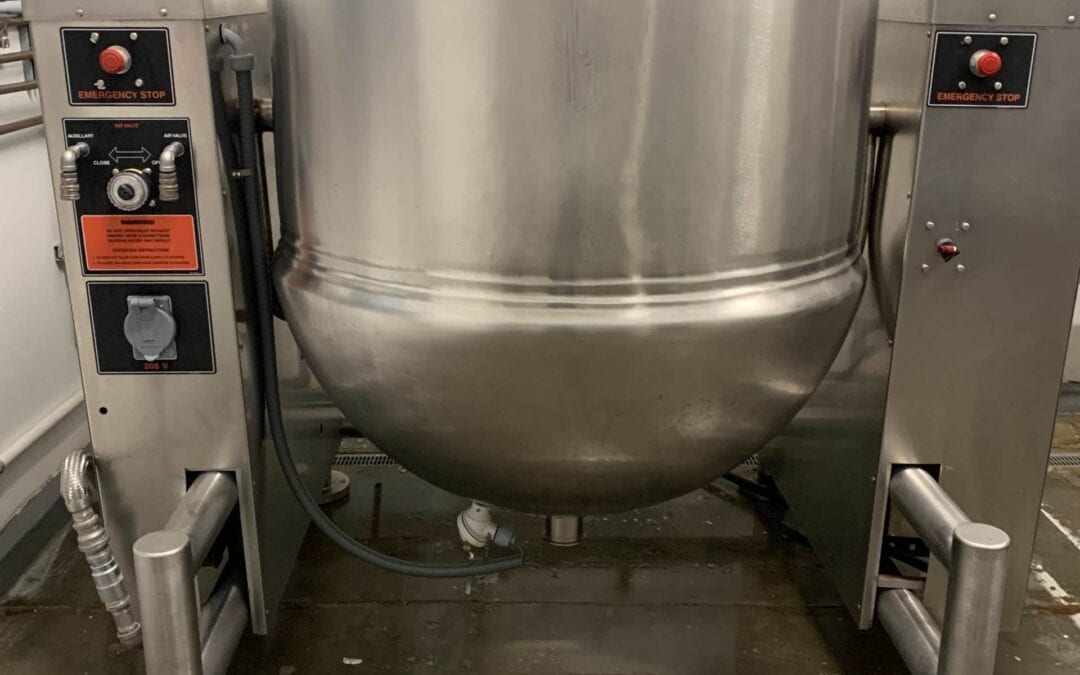The Ultimate Guide to Purchasing an Industrial Kettle: Key Considerations for Success
Industrial kettles play a pivotal role in various industries, from food processing to chemical manufacturing. Selecting the right industrial kettle is a critical decision that can impact production efficiency and product quality. In this comprehensive guide, we will explore key considerations to ensure a successful purchase and integration of an industrial kettle into your operations.
Material Construction:
The material and construction of an industrial kettle are fundamental to its performance and durability. Common materials include stainless steel, which is known for its corrosion resistance and durability. Consider the nature of the substances you will be processing and choose a material that is compatible with the industry standards and regulations.
Capacity and Size:
Determine the required capacity of the industrial kettle based on your production needs. Consider factors such as batch size, production volume, and future scalability. It’s crucial to strike a balance between having a kettle with sufficient capacity to meet demand and avoiding over-sizing that could lead to inefficient energy use.
Heating Method:
Industrial kettles can be heated through various methods, including electric, gas, or steam. The choice of heating method depends on factors such as energy efficiency, cost, and the specific requirements of your processes. Evaluate each option’s pros and cons to determine the most suitable heating method for your industrial kettle.
Temperature Control and Uniformity:
Precise temperature control is essential for many industrial processes. Ensure that the industrial kettle you choose provides accurate and consistent temperature regulation. Some advanced models offer programmable controllers and sensors to maintain optimal temperatures throughout the processing cycle, contributing to product quality and consistency.
Agitation and Mixing Features:
Consider the mixing and agitation requirements of your processes. Some industrial kettles come equipped with built-in agitators or mixing systems to ensure homogeneity in the contents. Evaluate the type and intensity of mixing required for your applications and choose a kettle that meets these specifications.
Ease of Cleaning and Maintenance:
Efficient cleaning and maintenance are crucial for the longevity and hygiene of your industrial kettle. Look for features such as easily accessible components, smooth interior surfaces, and user-friendly controls that facilitate thorough cleaning. Regular maintenance is essential to prevent downtime and ensure optimal performance.
Safety Features:
Prioritize safety features to protect operators and comply with industry regulations. This includes features like pressure relief valves, temperature monitoring systems, and emergency shut-off controls. Verify that the industrial kettle meets relevant safety standards and regulations applicable to your industry.
Customization Options:
Consider the flexibility and customization options offered by the industrial kettle manufacturer. Different industries have unique processing requirements, and having a kettle that can be tailored to specific needs is a valuable asset. Evaluate options for additional features, accessories, and modifications to accommodate your production processes.
Manufacturer Reputation:
Manufacturer Reputation and Support:
Research the reputation of the industrial kettle manufacturer. Opt for a reputable brand known for producing high-quality and reliable equipment. Additionally, consider the availability of technical support, spare parts, and warranty options, ensuring long-term reliability and assistance in case of any issues.
Summary
Selecting an industrial kettle involves a thorough analysis of material, capacity, heating method, temperature control, mixing features, cleaning and maintenance considerations, safety features, customization options, and the manufacturer’s reputation. By carefully evaluating these factors, businesses can make informed decisions that align with their specific production requirements, contributing to efficiency, safety, and overall success in their industrial processes.

